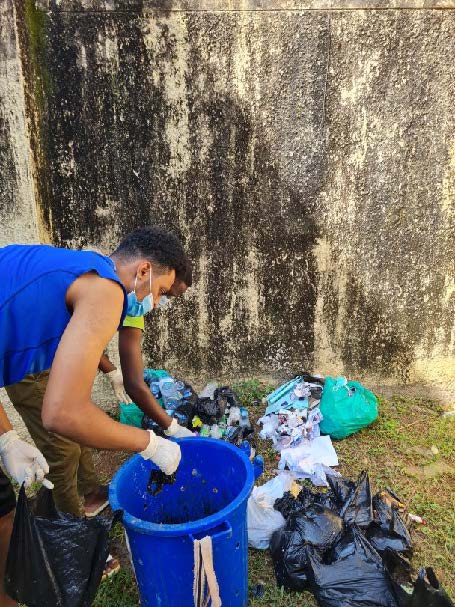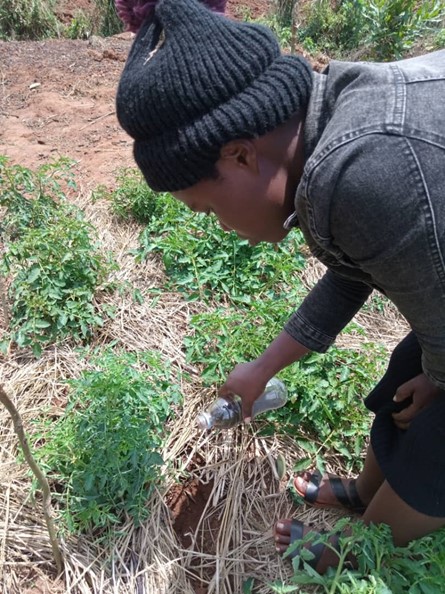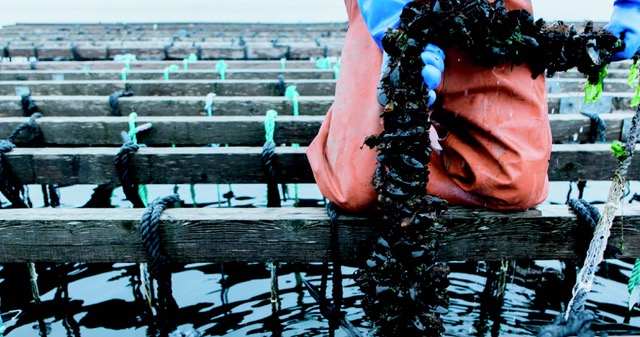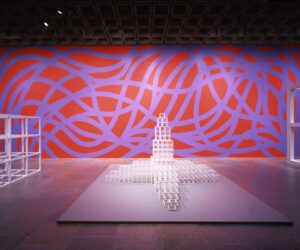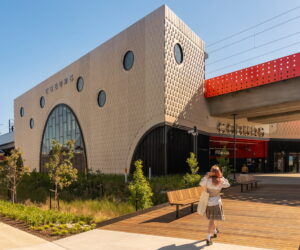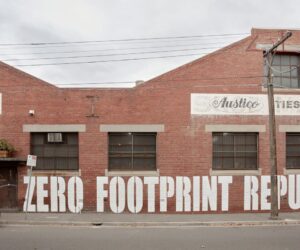Game-Changing Sustainable Solutions Announced for Wege Prize ’22
Design competition Wege Prize has announced its semifinalists for 2022, with teams of students from 17 countries including Zimbabwe, the Philippines, India, and Canada offering powerful ideas for a circular economy.
Addressing everything from hunger and climate change to social equity and pollution, the solutions advanced by 15 teams of students around the world offer a glimpse of the impact and benefits of Wege Prize, the competition they are vying to win this year.
Wege Prize, the international student design competition to create circular solutions to today’s “wicked problems,” is an agent of change for these lofty ambitions. For its 2022 edition, the judges for Wege Prize — organized by Kendall College of Art and Design of Ferris State University (KCAD) — have completed multiple rounds of feedback to narrow down its original field of 30-plus teams to 15 worthy semifinalists who now advance into the competition’s third phase.
At this point in the competition, the teams have received extensive feedback from expert judges and have further developed their innovative ideas, including plastics-degrading microbes, mobile hydroelectric generators, agricultural waste streams captured to boost community health, and aquaponics systems that save water and support ecological health and biodiversity.
The advancing teams have emerged from a global field of students in almost 100 areas of academic study at 70 universities and colleges from an astounding 29 countries. “In addition to their global makeup, we are very pleased with the strength of their concepts that hold real potential to power a transition from our current linear economy—in which we take, make, and dispose—to a circular economy that’s regenerative by design,” says Gayle DeBruyn, KCAD professor and Wege Prize leader.
“The quality of entries for Wege Prize has increased substantially in recent years, and this year’s field is the strongest yet,” says Colin Webster, a returning competition judge based in Edinburgh, Scotland, and an education program manager for U.K.-based Ellen MacArthur Foundation, known for it work to accelerate the transition to a circular economy.
About Wege Prize
Wege Prize was established in 2013 to solve the most complex, layered problems. The competition requires teams of individuals capable of working across the barriers that too often divide us — to drive systems-level change. “KCAD’s prize offers a powerful and accessible platform for any college or university student in the
world to develop tangible solutions that often find real-world acceptance and application after the competition concludes,” says DeBruyn, who speaks frequently on design thinking.
Examples from recent Wege Prize teams have included Rutopia, whose ideas for eco-sensitive tourism were covered by top editors at Forbes, among others, and who continued on from Wege Prize to win the prestigious $1 million Hult Prize. Another Wege Prize team, Hya Bioplastics, brought its process for making disposable food packaging out of waste to a prominent incubator that advanced their business.
Meet the Teams Accepted Into the Next Phase of the Competition
AquaPro
Tackling water pollution with an innovative aquaponics system to grow Tilapia fish, vegetables and duckweed, reducing fertilizer application in growing organic crops, slashing water usage by 90% and maximizing crop yield – while cutting water pollution – to contribute to the circular economy.
CirCon
Delivering an alternative solid waste and agricultural produce drying method with the use of renewable energy (solar concentrators) in an innovative new drier design.
CleanFire
Growing plants primarily using waste from various processes as their nutrients, then harvesting the plants and generating energy with waste streams.
Decarbonize Our Built Environment
This team addresses climate change and the building and construction industry by reinventing the mass timber supply chain.
Decomp
An organic plastic waste disposal solution using proprietary plastic-degrading microbes to facilitate the degradation of plastics in weeks, as opposed to the hundreds of years that plastics take to naturally degrade.
Dir Innovation Hub (Hulubeje)
A hybrid and movable hydroelectric generator that can produce 5 to 10 kW electricity by using small rivers and streams for a rural community.
Footprint
Making good use of discarded fabric – without downcycling — by using large-scale hyperspectral imagery to sort blends and colors, remove buttons and zippers, and more.
Green Promoters
Reducing the effects of chemical pesticides and fertilizers, the team is creating an organic product that is both a pesticide and a fertilizer.
Neocycle
Rare earth elements in laptops and catalytic converters are recycled and captured in a novel and sustainable synthetic biology approach for circular element extraction, recovery and usage.
PlasticFree Squad
This team is replacing single-use plastic containers with biodegradable containers made of bagasse, a byproduct of the sugar industry abundantly available in India.
Robust
Processing banana fiber waste into affordable and environmentally friendly textiles and paper bags.
Scup Aquaculture
Launching a technological innovation with multiple-use platforms to support offshore wind farms, aquaculture possibilities, and fish biodiversity.
Tizu Organics
Producing inexpensive organic biofertilizer, made with mountain microorganisms and food wastes from local Tanzanian markets — otherwise wasted tomatoes, spinach, cabbages and more.
Waste to Power
An organic waste disposal system designed to cut 70% of methane gas emitted to the atmosphere – caused by simple mismanagement of solid waste – creating organic fertilizer and affordable energy.
Wild Fruits Powered (WFP)
Utilizing tamarind fruits otherwise left to rot, the concept creates nutritious natural juices and funds a community project using tamarind pulp residue to make fertilizers and support local reforestation.
Thanks to the continuing financial support of The Wege Foundation, Wege Prize 2022 has opened these unique opportunities for undergraduate, graduate, and post-graduate students around the world and has helped advance the ideas and solutions behind the circular economy.
“We’re impressed with the international, collaborative and cross-disciplinary nature of the student teams under consideration as semi-finalists, hailing everywhere from the African Leadership University in Rwanda, to top U.S. schools like Brown and Yale, to Eastern Michigan University, right here in our home state.” —Martha Meiers, program coordinator for Wege Prize
More details about Wege Prize 2022 will be revealed in the coming weeks on wegeprize.org.
About Wege Prize
Wege Prize, a West Michigan-born concept developed by Kendall College of Art and Design of Ferris State University’s (KCAD’s) Wege Center for Sustainable Design with the support of The Wege Foundation, is an annual competition that ignites games-changing solutions for the future by inspiring college students around the world to collaborate across institutional, disciplinary, and cultural boundaries and redesign the way economies work.
About KCAD
Located in the heart of downtown Grand Rapids, Kendall College of Art and Design of Ferris State University (KCAD) is committed to creating lasting impact in West Michigan and beyond through collaborative partnerships, cultural innovation, and an educational model that prepares students for leadership in design, the visual arts, and art history; provides innovative, collaborative education that fosters intellectual growth and individual creativity; and promotes the ethical and civic responsibilities of artists and designers, locally and globally. For more information, please visit kcad.edu.
About The Wege Foundation
Planting seeds that develop leaders in economicology, health, education, and arts, and enhance the lives of people in West Michigan and around the world.

